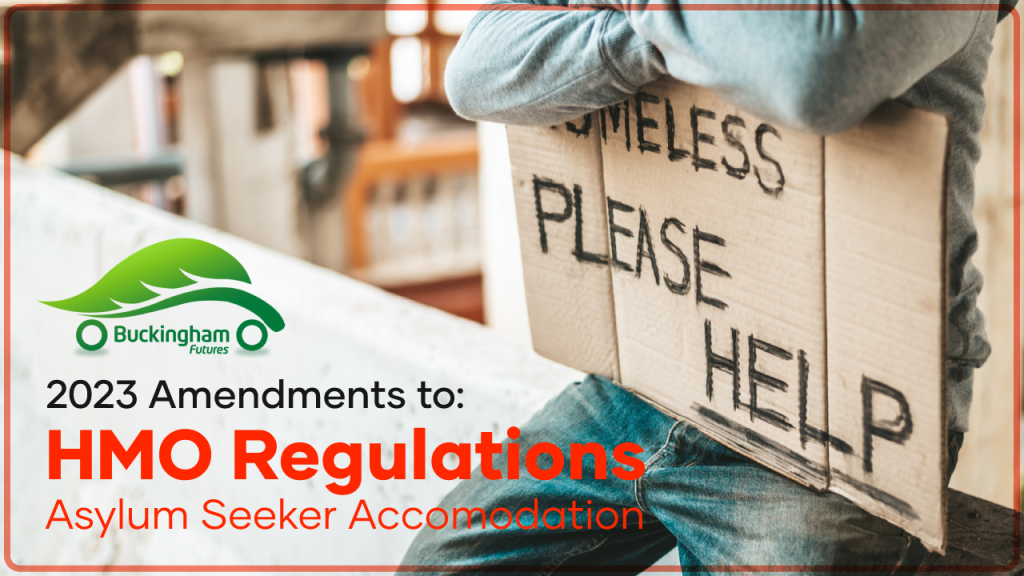
New Regulations for HMOs and Asylum-Seeker Accommodation

Earlier in April 2023, the Department for Levelling Up, Housing and Communities (DLUHC) had proposed and drafted a new temporary regulation for HMOs (Houses in Multiple Occupation), the regulation targets accommodations needed for asylum seekers coming to the UK.
What is a HMO?
HMOs are residential properties that are rented out to 3 or more people who share facilities such as a kitchen or bathroom. HMOs must meet certain standards set by local councils that can include requirements for hygiene, fire safety, and overcrowding. Landlords of HMOs also have specific legal responsibilities, including providing adequate fire detection and escape plans, maintaining the shared facilities, and ensuring the health and safety of tenants.
The Housing Act 2004 and HMOs
The Housing Act 2004 aims to regulate the standard, occupation and management of privately rented accommodation in England and Wales. In Part 2 of the Housing Act 2004, local housing authorities in England and Wales must licence HMOs. A licence may only be granted if the licence holder is a “fit and proper” person. Several sections within Part 2 states the regulations are mandatory in order for HMOs to operate in their respective local authorities:
- Section 55: It is mandatory for all HMOs of a prescribed description to be licenced.
- Section 55 (2)(b): Permits local housing authorities to introduce licencing of other HMOs through additional licencing.
- Section 67: Local housing authorities may impose licence conditions relating to the management, use and occupation of the HMO and its condition and contents.
- Section 72: Regards licencing offences, such as being in control of an HMO without a HMO licence.
Amendments and the 2-Year Exemption Period
The new regulations redefine HMO in regards to Part 2 of the Housing Act. These state that accommodation provided on behalf of the Home Office for asylum-seekers do not require an HMO licence from a local authority during a 2-year exemption period (amendments made will be repealed on 1 July 2026). Once these regulations come into full force new subsections (5A and 5B) will be inserted into section 254.
But why the sudden change?
The Home Office is currently seeking to house more asylum seekers across local authorities, in a quick and cost-effective manner. Asylum Accommodation Service Contract (AASC) providers have raised concerns that HMO licencing regulation is posing a barrier to acquiring such properties.
“There currently are approximately 6000 HMO properties accommodating 28000 asylum seekers.” – Explanatory Memorandum: The Houses in Multiple Occupation (Asylum-Seeker Accommodation) (England) Regulations 2023
Thus the requirement to amend Part 2 of the Housing Act was needed to temporarily remove such barriers that cause a delay or challenge in acquiring sustainable and cost-effective contingency accommodation for asylum seekers.
Full details of the new regulations can be found here:
Explanatory Memorandum – Houses In Multiple Occupations (Asylum-Seeker Accommodation) (England) 2023
Authors

Jacques Shepherd ~ Senior Recruitment Consultant, Lead of the Residential Division

Nick Cheung ~ Lead Marketing Executive
Buckingham Futures HQ
We are dedicated to providing our exceptional recruitment and consultancy services to you. With our team of specialist recruitment consultants, they will be able to assist you in your queries and job hunt.
Give us a call on 020 8125 4321 or email your CV to info@buckinghamfutures.com and let’s have a chat!
“Recruiting the Present, Inspiring the Future.” ~ Buckingham Futures

Share
Facebook
Twitter
LinkedIn
Telegram
Tumblr
WhatsApp
VK
Mail